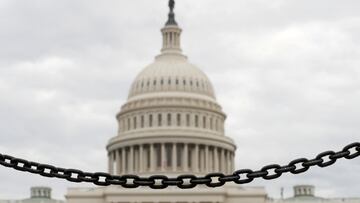FINANCIAL NEWS
Debt ceiling negotiations: Are Medicare and Social Security really off the table? Will taxes be affected?
Republicans have said discussions on the welfare state will not be part of their bargaining position in debt ceiling negotiations.

Republicans have said they do not want the debt ceiling cap lifted but are instead going to force the government to cut spending. Where these savings will be found is not to be social security it seems, if a new interview with McCarthy is to be believed.
“If you read our Commitment to America, all we talk about is strengthening Medicare and Social Security,” McCarthy told CBS’s Face the Nation.
It was thought that the GOP was leaning towards the route of cutting Social Security support. Laid out in the Republican Study Committee budget is a list of cost-saving measures such as raising retirement age. While McCarthy’s statement likely means no changes during debt ceiling negotiations, it does not mean they are unlikely to be tampered with in future.
Social Security makes up 21% of federal spending while Medicare, and its associated support, make up another 25%.
What do Republicans want to change instead?
Republicans oppose tax hikes so negotiations will need to be made with Democrats to find a solution. Other plans mooted include capping domestic spending at 2019 levels which would save $1.7 trillion over the next decade. For some scale, government spending for 2022 was $5.8 trillion in total. US defence spending for 2023 is $816 billion this year alone, the largest figure ever and something that could be the target for cuts.
“I want to make sure we’re protected in our defense spending, but I want to make sure it’s effective and efficient,” McCarthy said.
Debt situation a peril but an unlikely one
The debt ceiling has never been exceeded. In history it has been raised 78 times to ensure the US does not default on its debt obligations. With the dollar the world’s currency in 2023 such a move would cripple the US’s role as a reliant bank while damaging economies around the globe. Indeed, economists estimate that the US would lose 6 million jobs, $12 trillion in household wealth and 4% of gross domestic product. The unemployment rate would double to 7%.
Such economic peril is made more bizarre that the debt limit is self-imposed and could be removed by Congress. This has never proved necessary, owing to the dozens of increases, but with Republicans in control of the House negotiations will be needed. The number of right-wing GOP members, proven by the opposition to Kevin McCarthy’s role as speaker, shows negotiations to lift the cap will be very difficult.
The White House has said “raising the debt ceiling is not a negotiation; it is an obligation of this country and its leaders to avoid economic chaos.”






